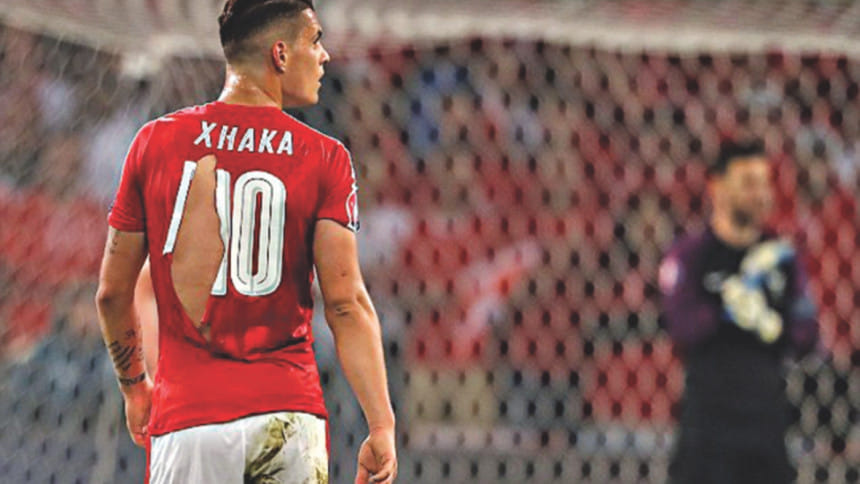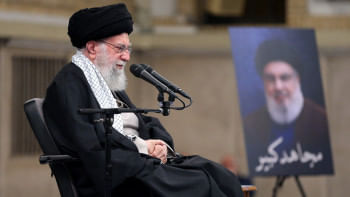Shaqiri pokes fun at Puma

Switzerland winger Xherdan Shaqiri said he hoped sportswear maker Puma "doesn't make condoms" after several Swiss players ended their Euro 2016 match with France with shredded jerseys.
The German company blamed a material flaw after four Swiss players -- Admir Mehmedi, Breel Embolo, Blerim Dzemaili and Granit Xhaka -- had to change their shirts in the first half of the goalless draw in Lille on Sunday.
Recent Arsenal recruit Xhaka had to change his shirt again in the second half.
"I hope Puma doesn't make condoms," Shaqiri told Switzerland's SRF broadcaster.
Former England striker Gary Lineker took the opportunity to poke fun on Twitter, writing: "Swiss team's Puma shirts tearing like paper. Adidas ball bursting. You can never rely on German efficiency!"
During the same match, the Adidas ball used burst in a tackle by Swiss midfielder Valon Behrami.
In a statement, Puma said that "our five Puma teams have played 10 games at Euro 2016 before this without experiencing this problem".
It later followed up to say that, in all, seven jerseys were ripped Sunday in "grabbing and tugging by French opponents" in the European Championship match.
It said its investigation had found that "there was a faulty batch of material in which the yarn was damaged during production".
It blamed incorrect application of heat and pressure in the manufacturing process in a workshop in Turkey and promised that "there will not be a repetition" of the flaw.
Puma is also the supplier for the teams of Austria, Czech Republic, Italy and Slovakia.
All of them had "confirmed that they had no problems of this kind and are very satisfied with the quality, functionality and design of the shirts," said the company.
"Puma regrets the incident and apologises to the Swiss Football Association and its players," it added.
The Swiss shirts will be needed for at least one more match as the team has qualified for the second round.
Puma's German rival Adidas said Monday it had agreed a four-year deal to remain kit supplier to Germany until 2022 worth more than 50 million euros a year.

 For all latest news, follow The Daily Star's Google News channel.
For all latest news, follow The Daily Star's Google News channel. 



Comments